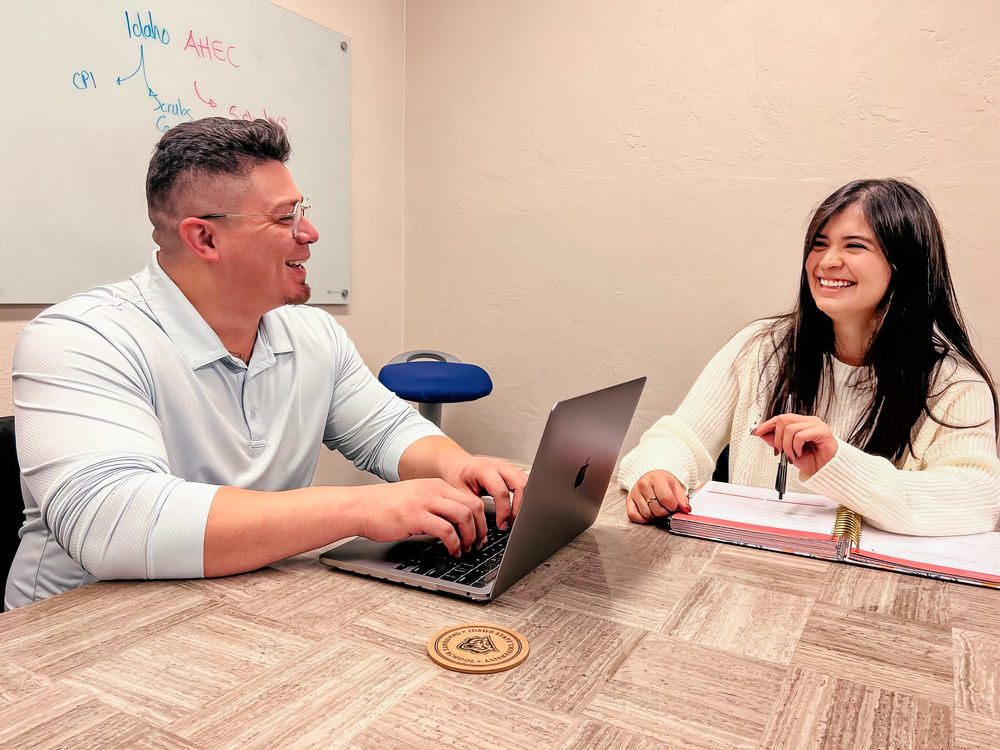A Chance for Better Outcomes

Joseph Chacon has a goal to make the world a better place. With a master’s degree in public health and two graduate certificates, in rural health and medical anthropology, from Idaho State University, he’s the first in his immediate family to earn a graduate degree. That’s just the beginning.
Chacon chose public health because the field aligns with his goals and he believes everything is interconnected, especially regarding health. For him, and for many who go into the field of public health, nothing exists alone.
As a member of the Shoshone-Bannock Tribes, he feels strongly about the care and treatment provided to those who have been incarcerated in tribal jails, or are currently somewhere in the judicial system. Chacon believes there is a better way to provide mental health treatment for those who need it. “In terms of treatment for addiction and other mental health illnesses, celebrated accomplishments and justifications for continuing the way things are done now have been based on fragmented data that often contradicts claims,” Chacon says.
Chacon conducted research around a federal law called Public Law 280 that requires certain states to take jurisdiction over criminal offenses against, or by Native Americans on specifically designated Tribal lands through transfer from the federal government.
Chacon says the five federally recognized tribes in the state weren’t included in the decision Idaho made to adopt partial jurisdiction in 1963.
The law requires a person called a designated examiner be assigned to Native nations or reservations to assess and refer mental health services within the judicial system, but a designated examiner has never been appointed to the Shoshone-Bannock Tribes.
“This means some members of our tribes have not been able to access certain health services, including mental health treatment, which is supposed to be guaranteed to them,” Chacon says.
“Seeing addiction as a treatable illness as opposed to a crime is not something everyone understands.”
Working with the Idaho Area Health Education Center (AHEC) Program Office, Chacon and his other advisors developed a research design that could help. In a detailed theory and concept-based article that discusses issues with mental health treatment within judicial systems, they emphasize a number of solutions, one being improved, high-quality communication between treatment participants, treatment teams, and judges.
“Judges and treatment teams sometimes don’t understand the complexities and dynamics for the majority of people who are diagnosed with more than one mental health issue,” he adds.
Chacon says many treatment programs are structured in a way to make some participants successful while they are in the program, but not after it is completed. His research shows that these treatment programs can lead to reincarceration when a person relapses in the case of addiction, which Chacon believes could be avoided if better treatment was available.
The article proposes a two-factor approach. In addition to improved communication, he says work must be done to change the perception held by many judges and treatment teams.
“Seeing addiction as a treatable illness as opposed to a crime is not something everyone understands,” Chacon says. “Changing the perception of judges and treatment teams to recognize those struggling with substance abuse as individuals who have an illness, as opposed to criminals in need of a standardized punishment, will take time.”
Putting his research into action, Chacon was able to work with the Shoshone-Bannock Tribal Health and Human Services and Idaho AHEC Program Office to begin developing a community needs assessment (CNA) aimed at improving health related programs and services for the Shoshone-Bannock Tribes.
After graduation, he worked with tribal health leaders to deliver the CNA and is now analyzing the resulting data to facilitate community and systems-based approaches and solutions.

